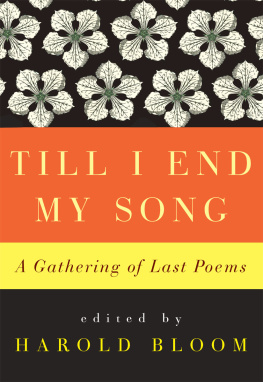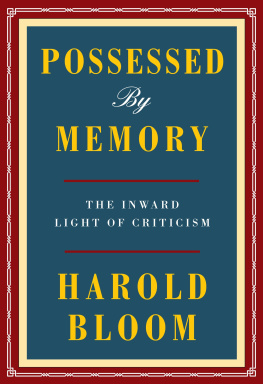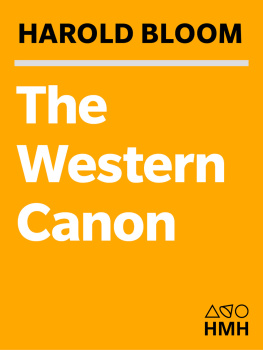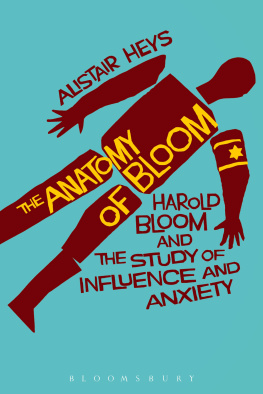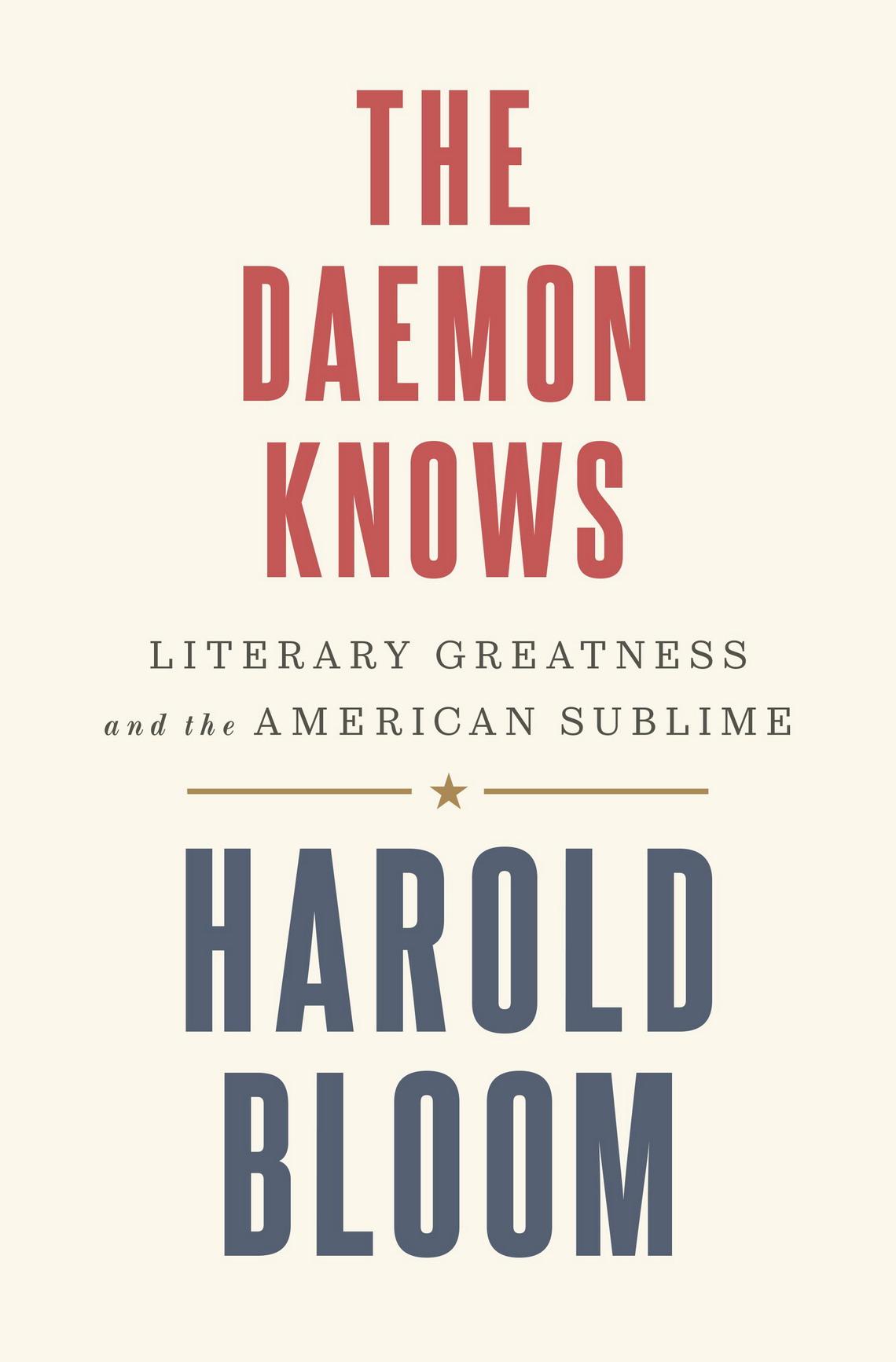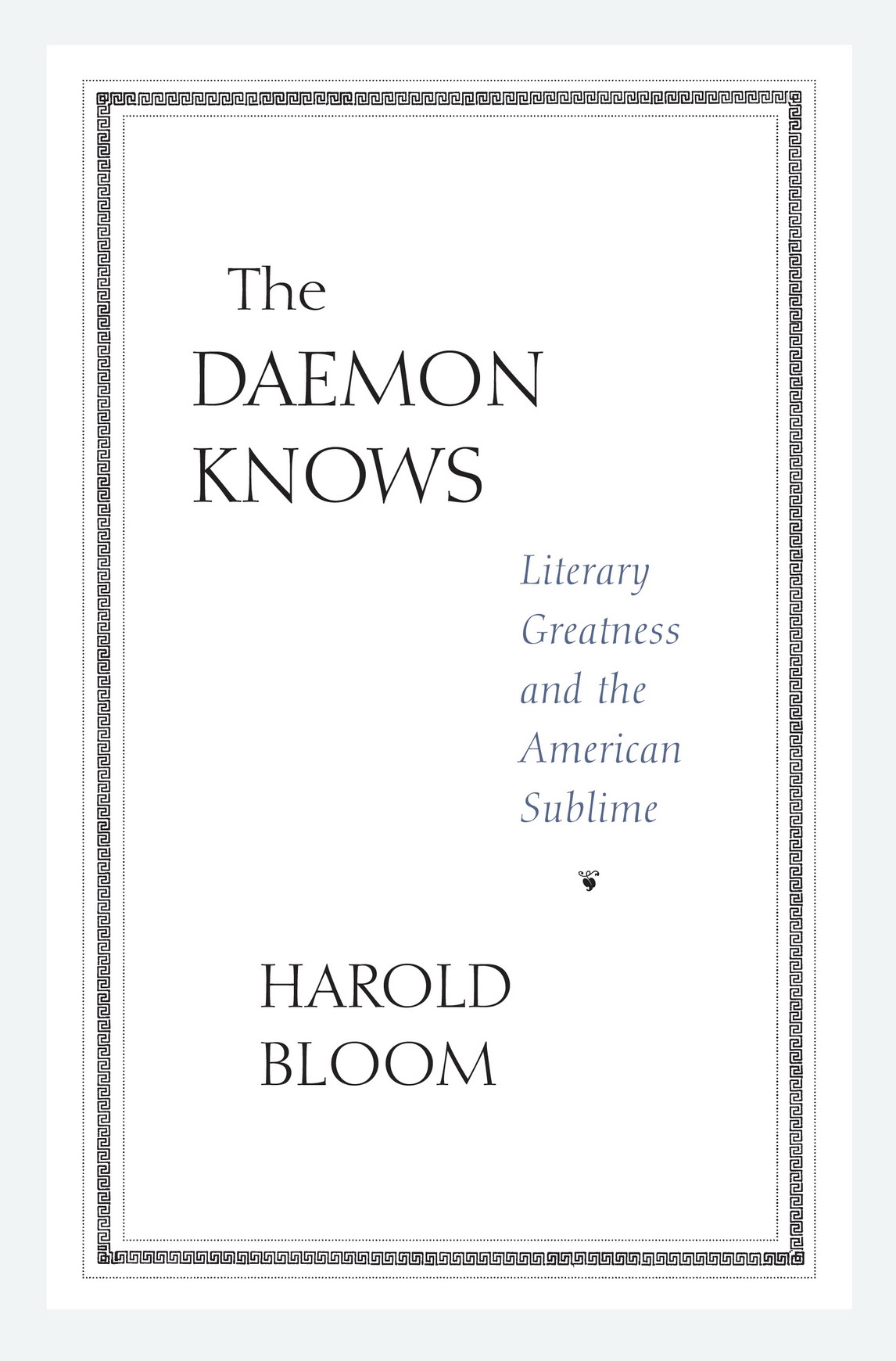Harold Bloom - The Daemon Knows: Literary Greatness and the American Sublime
Here you can read online Harold Bloom - The Daemon Knows: Literary Greatness and the American Sublime full text of the book (entire story) in english for free. Download pdf and epub, get meaning, cover and reviews about this ebook. year: 2015, publisher: Spiegel & Grau, genre: Science. Description of the work, (preface) as well as reviews are available. Best literature library LitArk.com created for fans of good reading and offers a wide selection of genres:
Romance novel
Science fiction
Adventure
Detective
Science
History
Home and family
Prose
Art
Politics
Computer
Non-fiction
Religion
Business
Children
Humor
Choose a favorite category and find really read worthwhile books. Enjoy immersion in the world of imagination, feel the emotions of the characters or learn something new for yourself, make an fascinating discovery.

- Book:The Daemon Knows: Literary Greatness and the American Sublime
- Author:
- Publisher:Spiegel & Grau
- Genre:
- Year:2015
- Rating:3 / 5
- Favourites:Add to favourites
- Your mark:
The Daemon Knows: Literary Greatness and the American Sublime: summary, description and annotation
We offer to read an annotation, description, summary or preface (depends on what the author of the book "The Daemon Knows: Literary Greatness and the American Sublime" wrote himself). If you haven't found the necessary information about the book — write in the comments, we will try to find it.
Hailed as the indispensable critic by The New York Review of Books, Harold BloomNew York Times bestselling writer and Sterling Professor of Humanities at Yale Universityhas for decades been sharing with readers and students his genius and passion for understanding literature and explaining why it matters. Now he turns at long last to his beloved writers of our national literature in an expansive and mesmerizing book that is one of his most incisive and profoundly personal to date. A product of five years of writing and a lifetime of reading and scholarship, The Daemon Knows may be Blooms most masterly book yet.
Pairing Walt Whitman with Herman Melville, Ralph Waldo Emerson with Emily Dickinson, Nathaniel Hawthorne with Henry James, Mark Twain with Robert Frost, Wallace Stevens with T. S. Eliot, and William Faulkner with Hart Crane, Bloom places these writers works in conversation with one another, exploring their relationship to the daemonthe spark of genius or Orphic musein their creation and helping us understand their writing with new immediacy and relevance. It is the intensity of their preoccupation with the sublime, Bloom proposes, that distinguishes these American writers from their European predecessors.
As he reflects on a lifetime lived among the works explored in this book, Bloom has himself, in this magnificent achievement, created a work touched by the daemon.
Praise for Harold Bloom and The Daemon Knows
The sublime The Daemon Knows is a veritable feast for the general reader (me) as well as the advanced (I assume) one.John Ashbery
[Bloom] is, by any reckoning, one of the most stimulating literary presences of the last half-century.Sam Tanenhaus, TheNew York Times Book Review
As always, Bloom conveys the intimate, urgent, compelling sense of why it matters that we read these canonical authors.Kirkus Reviews (starred review)
Bloom thinks in the sweep of millennia, of intellectual patterns that unfold over centuries, of a vast and intricate labyrinth of interconnections between artists from Plato to Pater.Michael Lindgren, TheWashington Post
A colossus among critics.Adam Begley, TheNew York Times Magazine
Probably the most celebrated literary critic in the United States.Frank Kermode, The Guardian
Harold Bloom: author's other books
Who wrote The Daemon Knows: Literary Greatness and the American Sublime? Find out the surname, the name of the author of the book and a list of all author's works by series.

